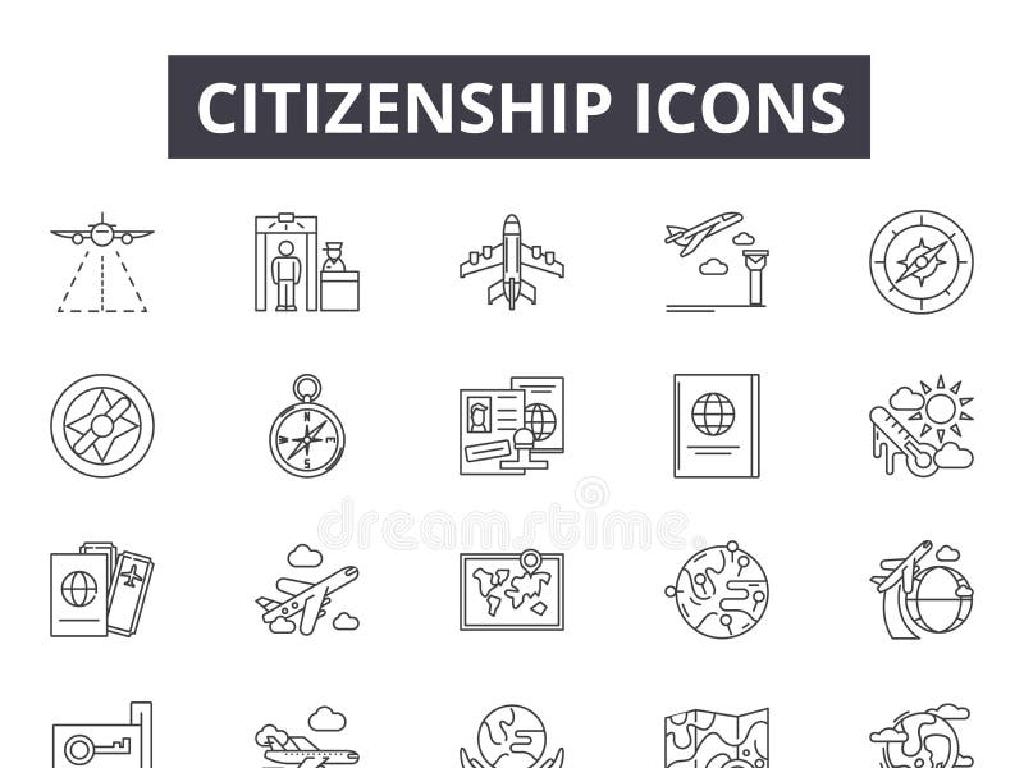The Teachings Of Confucius
Subject: Social studies
Grade: Seventh grade
Topic: Early China
Please LOG IN to download the presentation. Access is available to registered users only.
View More Content
Exploring Early China: The Teachings of Confucius
– Glimpse into Early China
– Significance of Confucius
– Confucius shaped Chinese culture & moral values.
– Key teachings of Confucius
– Concepts like respect, family loyalty, and righteousness.
– Today’s learning objectives
|
This slide introduces students to the ancient period of Early China, setting the stage for a focused discussion on one of its most influential figures, Confucius. Emphasize the lasting impact of Confucius on Chinese society, culture, and ethics. Highlight his key teachings, which include the importance of respect for others, devotion to family, and the pursuit of righteousness and justice. The learning objectives for today’s lesson are to understand who Confucius was, the core principles of his philosophy, and how his ideas have shaped the world. Engage students by asking what they already know about Confucius and Early China to create an interactive learning environment.
Who Was Confucius?
– Confucius: China’s renowned philosopher
– A teacher, philosopher, and political theorist from ancient China.
– His early life and background
– Born in 551 BCE in the state of Lu, now known as Shandong Province.
– Significance in Chinese history
– His ideas on ethics, education, and politics deeply influenced Chinese culture.
– Confucius’ lasting impact
– Confucianism still shapes societal values and institutions in China.
|
Confucius is one of the most influential figures in Chinese history, whose teachings have shaped Eastern philosophy and cultural practices for centuries. His early life, marked by modest beginnings, set the stage for his later work as a teacher and philosopher. Confucius’ significance lies in his profound impact on Chinese thought, particularly in areas of morality and governance. His philosophy, known as Confucianism, emphasized personal and governmental morality, correctness of social relationships, justice, and sincerity. These teachings not only played a critical role in the development of Chinese civilization but also continue to influence modern society. As students learn about Confucius, encourage them to consider how his ideas might still be relevant today.
The Teachings of Confucius
– Key principles of Confucianism
– Confucianism emphasizes morality, family, social harmony, and education.
– Understanding ‘Ren’ or Benevolence
– ‘Ren’ is the Confucian virtue denoting the good feeling a virtuous human experiences when being altruistic.
– Embracing ‘Li’ for Proper Behavior
– ‘Li’ refers to the idea of adhering to proper conduct and rituals in daily life.
– Confucius’s impact on society
– Confucius’s ideas shaped Chinese civilization and influenced many other cultures.
|
This slide introduces students to the fundamental teachings of Confucius, a Chinese philosopher whose ideas have had a lasting impact on Chinese society and beyond. Confucianism is not just a philosophy but a way of life that stresses the importance of morality, the significance of family bonds, the need for social harmony, and the value of education. ‘Ren’ and ‘Li’ are central concepts in Confucianism, representing benevolence and proper behavior, respectively. These concepts are crucial for understanding how individuals should interact with others and conduct themselves in society. The teachings of Confucius encourage students to reflect on their behavior and relationships with others. Encourage students to think of examples of ‘Ren’ and ‘Li’ in their lives and discuss how these principles can be applied today.
Confucianism in Ancient Chinese Society
– Influence on Chinese society
– Confucianism shaped social structures, emphasizing order and harmony.
– Confucianism’s role in family
– Stressed filial piety and respect within the family unit.
– Impact on government
– Guided governance principles, promoting merit and ethics.
– Shaping education systems
– Established the importance of learning and civil service examinations.
|
Confucianism, a philosophy founded by Confucius, deeply influenced various aspects of ancient Chinese society. It promoted a structured society with a focus on harmony and order, where everyone had a specific role. Within the family, Confucianism emphasized filial piety, respect for one’s parents and elders, and the importance of family loyalty. In government, it encouraged a merit-based system where officials were chosen based on their knowledge and adherence to ethical principles, rather than birthright. Education was highly valued, with the civil service examination system being established to select government officials. This system underscored the importance of education and moral conduct in society. Encourage students to think about how these teachings might influence their own lives and society today.
Confucius’s Impact on Modern Society
– Confucianism in today’s world
– Confucianism influences social conduct and education systems.
– Modern examples of principles
– Respect for elders, merit-based advancement, and emphasis on education.
– Teachings in contemporary culture
– Confucius’s ideas seen in modern etiquette, business practices, and government.
– Influence on ethics
– Ethical frameworks in business and personal life draw on Confucian ideals.
|
This slide explores the enduring legacy of Confucius’s teachings and how they continue to influence modern society. Confucianism, with its focus on morality, proper social relationships, and justice, can be seen in various aspects of contemporary life, from the way we respect our elders to how our education systems are structured. Students should understand that Confucian principles such as harmony, respect, and benevolence are not just historical concepts but are actively applied in today’s cultural and ethical practices. Encourage students to find examples of Confucianism in their daily lives and consider how these ancient teachings remain relevant in the modern world.
Class Activity: Confucianism in Our Lives
– Discuss Confucianism’s relevance today
– Write a paragraph on ‘Respect in School’
– Reflect on how respect is a key aspect of school life
– Use Confucian principles in your writing
– Consider principles like ‘Ren’ (kindness) and ‘Li’ (proper behavior)
– Share your ideas with the class
|
This activity aims to make the ancient teachings of Confucius relatable to the students’ everyday lives. Begin with a group discussion on how Confucian teachings, such as respect for elders and authority, kindness, and proper conduct, can be applied in today’s society. For the writing activity, instruct students to think about how they can show respect in school, perhaps by being kind to classmates or listening attentively to their teacher. Encourage them to incorporate Confucian principles into their paragraph. After writing, create a sharing environment where students can discuss their ideas and how these principles can improve their school experience. Possible variations of the activity could include role-playing scenarios, creating posters of Confucian quotes, or writing letters of appreciation to someone they respect.






